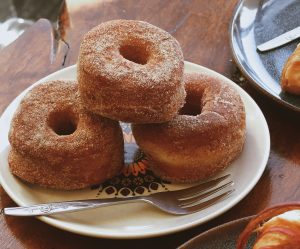
Last week my daughter was sick—it feels almost bi-weekly since starting pre-school, which I understand is relatively par for the course. Sometimes my wife and I both catch it, other times only one of us does, and occasionally we both sort of manage to fight off an apparently diluted version of it for a few days. Fortunately, this time around was the latter.
There is a saying in the west: No cure for the common cold, implying of course that we can take over the counter meds to manage symptoms but there is no actual medication to resolve the virus itself—the best we can do is rest, take care, and let it run its course. This is false. As is the case almost anytime biomedicine claims no cure exists, what it really means is that they have nothing to offer it. Whereas every Chinese Medical text ever written describes countless different viral patterns and presentations and their corresponding prescriptions, complete with the dosage modifications as indicated.
One of the most common herbal formulas given is called Gui Zhi Tang (gway-jer-tong), which contains simply cinnamon branch, paoniae root, ginger, red dates, and licorice. It is often indicated when there is congestion and/or headaches, chills, mild body aches, and mild sweating. If there is no sweating at all and severe body aches, we are more likely to use an ephedra-based formula, as gui zhi tang would be incorrect here.
Cinnamon branch warms the interior of the body and brings healthy fluids and the immunological cellular energy contained within them to the surface of the body. Ginger complements this function, whereas the licorice, dates, and paoniae counterbalance it, regenerating healthy metabolic fluids, preventing the cinnamon and ginger from creating excessive internal dryness and thereby prolonging imperfect health. It’s quite brilliant. Paeoniae has the additional benefit of entering the body’s muscle layer to reduce aches. This is often applicable to chronic pain as well.
Classically it is recommended to drink the formula then immediately eat a bowl of congee rice porridge, get under the covers, and induce a mild sweat to fully and finally resolve the cold. Personally, I have done this in the past with great success. If congee’s not your thing, a bowl of ramen or pho can work just as well—just please no smoothies, yogurt, or salads while sick!
My wife, daughter, and I went to one of the local farms last week, gathering pumpkins and apples for the season, and although refined sugar is a rarity at home, I was compelled to grab some apple cider cinnamon donuts as a seasonal staple. When Peyton came down with her cold I hid some Chinese herbs inside one of the donuts, and almost instinctively she took it over to the couch, sat down, and got under a blanket to indulge.
Surely, the donut did more harm than good, but that doesn’t mean it didn’t do any good at all. In conjunction with the herbs, I spent whatever time I could rubbing and tapping her upper back, over her lungs, a similar premise to using gua sha or cupping techniques at the same location for when people come into the office sick. Some of these techniques might have to be dusted off, as 2023 marks the first in the past few years that people with colds are welcome back, preferably with a mask of course.
As we enter cold and flu season, I hope folks will consider Chinese Medicine, as opposed to taking over the counter symptom suppressants that push the pathogen deeper into the body and potentially create the more notorious pattern, the “unresolved exterior pathogen.” This can be seen in everything from autoimmune to migraines or skin conditions, and often demands the cinnamon branch ingredient as well, though within much more complex formulas, taken over much longer periods of time, and never within a donut.


